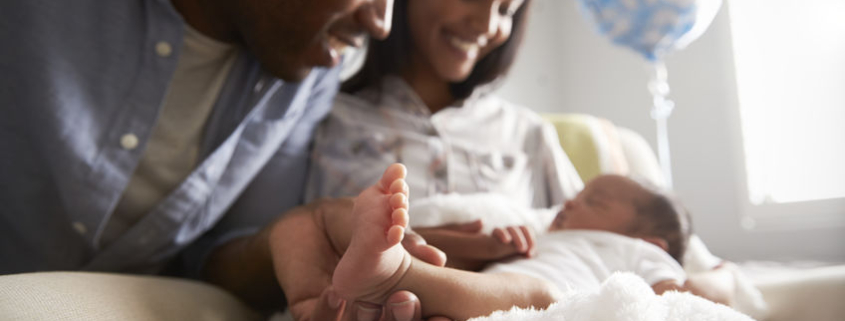Maternal Mental Health Awareness Month: More Than Postpartum Depression
By: Alyssa Fagan-Clark, LMSW |Behavioral Health Counselor
During May, we celebrate Mother’s Day and Maternal Mental Health Awareness month! We often think of new motherhood as a time of excitement, care giving, happiness, and a deep sense of love. And while it is often all these things, conditions like postpartum depression can also be a period of intense struggle and uncertainty for many mothers and their loved ones.
According to Postpartum Support International, perinatal mental health disorders are the number one childbirth complication. One out of every seven mothers will face some form of postpartum mental health disorder, and the number is much higher for women of color with one of every three mothers impacted.
According to the CDC, the rate of maternal depression diagnoses at delivery is increasing. In 2015, the rate had increased seven times from where it was in 2000! This is more than the slight emotional changes most women – around 80% – experience in the 3-5 days after childbirth known as the “Baby Blues” period.
The “Baby Blues” happens after childbirth, when a woman’s body undergoes extreme hormonal and physical changes, in addition to the added emotional stress of caring for a newborn. This period typically lasts 2 weeks or less. Symptoms of the “Baby Blues” usually include moodiness, tearfulness, feeling overwhelmed, and general tiredness. While these emotional changes are normal and expected for most women, significant mood changes occurring for moms past this two-week period are a sign that she likely needs additional mental health support. While postpartum depression is a term many people may be familiar with, there are many other types of mental health disorders new mothers face.
Perinatal mental health disorders can include:
- Anxiety
- Depression
- Obsessive compulsive disorder
- Post-traumatic stress disorder
- And in rare cases, psychosis
Mothers who experience symptoms of these disorders may find themselves scared, uncertain, or even ashamed. Most mothers don’t expect complications like this during a time they thought they would be their happiest.
There are some risk factors for perinatal mental health disorders, including:
- Personal or family history of mental illness
- Economic stress
- Having a baby who experienced a NICU stay
- Experiencing an especially stressful or traumatic birth
- Certain health diagnoses such as a thyroid issue or diabetes
A new mother’s best and most immediate source of help may be close friends and family members, who can recognize if she is struggling emotionally and assist her to get connected with professional support.
Luckily, the NOAH behavioral health team has mental health practitioners who are specially trained to work with new mothers (and fathers) who are struggling with mental health needs in this special time. If you or a parent you know needs care, please contact NOAH today.





